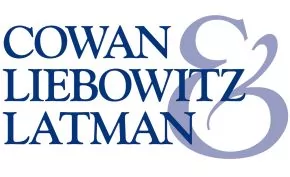A non-U.S. applicant seeking to register a mark in the U.S. without having used it in U.S. commerce normally should take affirmative steps to establish its bona fide intent to use its mark just like a domestic intent to use trademark applicant.
In an earlier blog post entitled " How to Establish a Bona Fide Intent to Use for a Trademark Application," we wrote about a domestic case that held that a U.S. applicant had failed to establish a bona fide intent to use its mark. We noted that It would be desirable for a non-U.S. applicant to have the same evidence as a domestic applicant of its intention to use its mark in U.S. commerce.
This suggestion has now been confirmed in a precedential decision by the Trademark Trial and Appeal Board (TTAB). It sustained an opposition for a lack of a bona fide intent to use a mark in U.S. commerce against an application by a non-U.S. applicant seeking to extend to the U.S. its International Registration obtained from the World Intellectual Property Organization (WIPO) under the Madrid Protocol.
The Case
A Spanish individual named Cándido Viñuales Taboada applied for an International Registration of the mark NESPORT for a long list of goods in Classes 5, 30, and 32. He simultaneously requested an extension of protection to the U.S. pursuant to U.S. Trademark Act §66(a). The Applicant had filed the required declaration specifying that he had a bona fide intention to use the mark in U.S. commerce on or in connection with the specified goods.
The Swiss company Société des Produits Nestlé S.A. opposed the U.S. extension on various grounds, including that the Applicant lacked a bona fide intent at the time he sought his U.S. registration. The TTAB sustained the opposition on that ground.
The Evidence
The Applicant explained that NESPORT was derived from the combination of NE (Near & Need) and SPORT. He said he was going to use the mark on goods for people who regularly engage in sport and exercise at an amateur level and do not require the high functioning food items and supplements needed by professional athletes.
He testified that, because of Opposer's legal actions in the U.S. and overseas, he "believed it prudent not to expend resources seeking investors and continuing to develop and promote goods under the NESPORT mark" until proceedings were concluded and registrations secured.
The TTAB stated that Applicant's mere statement of a subjective intention, without more, would be insufficient because the TTAB looks for objective evidence of an applicant's good faith intent to use its mark.
In this case, a preponderance of the evidence showed:
- Specification in the application of a large number of recited goods as diverse as pharmaceuticals, sterilizing and disinfectant preparations, teeth filling and dental impression materials, vermin control products, herbicides, and an array of food and beverages
- No proof that Applicant had the capability, expertise or infrastructure, either directly or through licensees, to produce and distribute such a wide range of products
- No product sales, no advertising or promotional expenditures
- No advertising or promotional materials
- No assignees, licensees or authorized users of the NESPORT mark
- No agreements or communications with potential manufacturers, distributors or suppliers for his NESPORT branded products
- No commitments from U.S. retailers to carry his products
- No materials demonstrating attempts to obtain regulatory approval for his products (e.g., his pharmaceutical and alcoholic beverage products)
- No documentation showing his attendance at trade shows, expositions or competitions
- No materials showing designs for anticipated packaging or labeling.
- A website (nesport.com) consisting of a "coming soon" holding page
- Documents as to a business plan that lacked detail, cost estimates, mass emails to U.S. manufacturers and distributors, and an update to the website, none of which existed until over two years after the application's filing date.
- Foreign and domestic trademark and domain name filings, and evidence submitted in an opposition brought by Opposer in Australia.
The absence of sufficiently contemporaneous documentary support, and this record as a whole, indicated to the TTAB only the Applicant's resolve to reserve rights to the NESPORT mark for potential use in commerce at some undefined time in the future. Applicant's pending domestic and Australian oppositions with Opposer did not suffice to rebut the claim that he had no bona fide intent to use his mark in U.S. commerce at the time of filing. Therefore, the TTAB ruled in Opposer's favor and refused registration.
Author's Note: There are three bases under which a non-U.S. party can apply to register a mark in the U.S. without having first used it in U.S. commerce for the specified goods or services: (1) a bona fide intent to use the mark in U.S. commerce under Trademark Act §1(b), (2) a non-U.S registration under §44(e), or (3) an extension of an International Registration under §66(a).
All three bases require at the time of filing that the applicant state-and actually have--a bona fide intent to use the mark in U.S. commerce for the specified goods or services.
The litany of insufficient evidence in this case presents a checklist of steps a non-U.S. applicant might take to establish such intent. At least some such steps should be taken preferably before, or at least within a few months after, filing an application to register a mark in the U.S.
The content of this article is intended to provide a general guide to the subject matter. Specialist advice should be sought about your specific circumstances.

